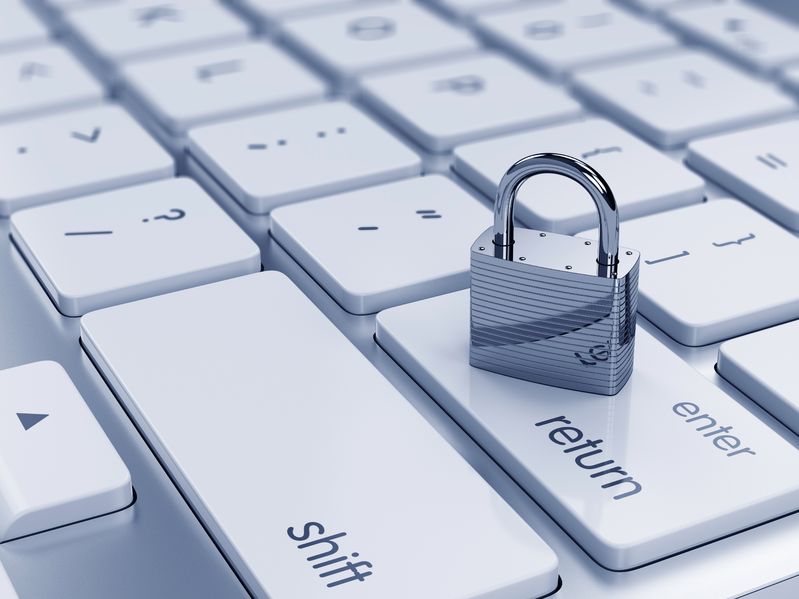What Are You Doing With That Paper on Your Camera?
April 10, 2017
With the one-to-one application of Chromebooks at Santa Fe High, it is impossible to miss the little post-it notes or papers students have been sticking to their cameras. This is no new trend: Mark Zuckerberg does it, and even FBI Director James Comey once told an audience, “I put a piece of tape over the camera because I saw somebody smarter than I am had a piece of tape over their camera.”
The threat of surveillance has undoubtedly changed the way people accept new ideas and devices. The question is, How much are we really being watched?
Simply put, anything with a camera can be hacked, as our president would say, by “somebody sitting on their bed who weighs 400 pounds.” For instance, the website Metro recently reported a couple who complained to the Revenge Porn Helpline that they discovered a video of them having sex on a porn website, later realizing that the video came from a Smart TV hacker.
The hacking can go beyond basic creep, too: The government is actually responsible for a lot worse. Programs such as PRISM (Planning Tool for Resource Integration, Synchronization, and Management) allow the National Security Agency to have access to any content from non-Americans on American servers from websites such as Google, Apple and Facebook.
In addition, the Edward Snowden whistleblowing episode in 2013 revealed that the government taps into mobile networks both domestic and foreign. This collection of data has led to widespread collection of data on phones’ locations, especially of those who travel abroad.
Since the Snowden leaks, however, privacy has made some comeback. The Freedom Act, put into place in 2015, modified certain terms of cyber security, including prohibiting the collection of phone data, making it so that the NSA needs to get a court order for phone records of people who seem “suspicious.”
The Freedom Act also, however, renewed expired parts of the Patriot Act, an act created by the Bush administration after 9/11, for the purpose of “Uniting and Strengthening America by Providing Appropriate Tools Required to Intercept and Obstruct Terrorism.”
However, these regulations within the Freedom Act’s restriction on collecting mass amounts of phone data, helping to ease tensions created by the Snowden leaks, have just recently been repealed by a conservative vote in Congress. Awaiting an anticipated signature from Trump, the move will repeal some of the only citizen privacy laws in place, re-granting the government access to cell phone data.
It is undeniable that the NSA has grown into a power that can seemingly hack each citizen, be it through a phone or camera or personal data, with frightening ease. Even these so-called regulations that have been brought in to protect American privacy seems minimal. And it’s completely legal, too. The NSA has been and continues to use surveillance rights primarily granted by the Patriot Act. In addition, programs like PRISM are still granting the United States overwhelming control on U.S. tech companies’ data.
So, the question becomes simple: How can we as citizens restrict both the government and the common hacker from what most would recognize as a breach of privacy? Well simply put, with the growing influence and necessity of technology in today’s culture, there are very few things we can do beyond actually pushing for a change in laws themselves, laws that have snuck through because, as Snowden claims, the government says “that because of the crisis, because of the dangers that we face in the world, some new and unpredicted threat, we need more authority, we need more power, and there will be nothing the people can do at that point to oppose it. And it will be turnkey tyranny.”
But there are a few simple fixes, like covering a camera, that can go a long way. If you are really worried, though, there are slightly more complex methods recommended by Snowden to really maximize security from the government.
If you are worried about messages being watched, cyber security experts recommend using Apple’s iMessage and the even more secure WhatsApp, both of which offer end-to-end encryption. By contrast, most email services and SMS messages (text messages) should be avoided at all costs, as they are not encrypted and are very easy to intercept. With email, however, secure providers such as ProtonMail, Tutanota, and Kolab Now offer end to end encryption from non-American companies, offering an NSA-regulation-free method of communication.
There is also a simple setting, called “full disk encryption,” that should be activated. Most new Macs have it on by default and most new Windows computers have it in the settings, called a “BitLocker,” but it is not activated in default settings. Full disk encryption makes it so that every bit of data that goes on a disk is converted into an unreadable code that is almost unhackable without help from the company. This is only beneficial when a computer is logged out or shut off, and if you forget the login passwords, it will be impossible to recover the data.
Hacking will always be part of life in the digital age. But as Jeh Johnson, former Secretary of Homeland Security once told an audience, “Cybersecurity is a shared responsibility, and it boils down to this: in cybersecurity, the more systems we secure, the more secure we all are.”


